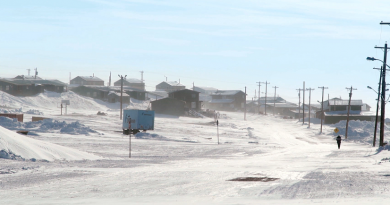Nordic Sámi Convention agreement reached after more than a decade

After 11 years a unified Nordic agreement on indigenous Sámi rights and culture has been reached.
The agreement ostensibly broadens the definition of Sámi persons eligible to vote in Sámi Parliament elections. However, chair Tiina Sanila-Aikio says that the historic agreement is only the most recent step in a long process.
Chair of Finland’s Sámi Parliament, Tiina Sanila-Aikio, says she is glad that a Nordic Sámi Convention agreement has finally been reached. However, the process of vouchsafing the rights of Europe’s northernmost indigenous population is still set to be long and winding.
Work on the unified agreement started more than ten years ago.
“An agreement of this scope has been in the works for many decades,” Sanila-Aikio says. “In the early 2000s a working group was established to formulate an agreement draft, and in 2005 negotiations began. Now, in 2016, this group of negotiators has agreed on a Convention. It is a very big deal for us.”
The agreement has yet to be technically proofread, and the required amendments to Finland’s national legislation on the right to vote will be made before the next elections, which will be held in autumn 2019, according to a Ministry of Justice release.
Unified definition of a Sámi person – to come
The Ministry of Justice announced on Thursday that the new, unified Sámi agreement is based on the current definition of a Sámi person used by the Norwegian government. Chair Sanila-Aikio says the definition is solid.
“But we have to remember that this is also a compromise. I am still happy that a common definition of the kind of person allowed to vote in the Sámi Parliament elections has been found.”
The most salient change affecting the lives of Sámi people in Finland is that an older, archaic definition of a person belonging to that demographic has been done away with.
The older, distastefully nicknamed “Lapp clause” (Fin. lappalaispykälä) from 1995 held that the only people eligible to vote in the Sámi Parliament elections are persons whose parents or grandparents – or obviously the person themselves – have been taught a Sámi language as their native language; who are directly related to someone listed in any of three official documents as a native Sámi; or at least one of whose parents was or could have been marked as having the right to vote in the Sámi Delegation or Parliament.
The official Finnish definition under the new agreement will have to wait until the 2019 elections, because it has to be altered in national legislation. Please see the fact box below for the Norwegian definition (or read the full Norwegian Sami Act in English here).
Final Nordic accord – to come
Sanila-Aikio reminds readers that before the Norwegian-based definition can be enacted, it must be approved by the governments of Norway, Finland and Sweden together.
“The majority populations of these three countries must accept and support the definition, seeing as a majority of Sámi people live in the Nordic countries,” Sanila-Aikio says. A small number also live in Russia.
She reiterates that the agreement is a substantial compromise, but that it also ensures a certain minimum degree to be sustained in Sámi policy in future.
The Norwegian, Finnish, Swedish and Sámi Parliaments all have to process the agreement before it can be made law. All of this will take a long time yet.
“I hope there will be no opposition, but realistically speaking some form of debate and criticism will likely arise,” Sanila-Aikio says. “On the other hand I believe there is power in the Sámi people of three different countries coming together. This way the agreement would be very difficult to repeal in any single country’s parliament.”
Finland has yet to ratify the international ILO 169 agreement on indigenous rights.
Related stories from around the North:
Canada: Arctic missing from Paris climate agreement, Eye on the Arctic
Finland: Sámi politician calls Finland “racist country”, Yle News
Greenland: What the EU seal ban has meant for Inuit communities in the Arctic, Eye on the Arctic
Sweden: Sami win case for rights to hunt, fish in Sweden, Radio Sweden
Russia: Indigenous Peoples activist detained in Moscow, The Independent Barents Observer
United States: Arctic conference spotlights indigenous issues, Alaska Dispatch News




Re-check your sources please. The Lapp clause does not mention languages. Instead it says that a person whose forebears from so-and-so many generations ago were marked as “Lapps” in Finland’s tax payer registration. This is the clause that has been in dispute. The language-based clauses have never not caused similar schism.
The problem with the Lapp clause is that while some regard it as a proof of their ancestral rights, some others say that these people are fake Sami, that they really are Finns pretending to have Sami ancestry, or that their forebears have gotten assimilated to Finnish culture so early on that they cannot be classified as Sami anymore.